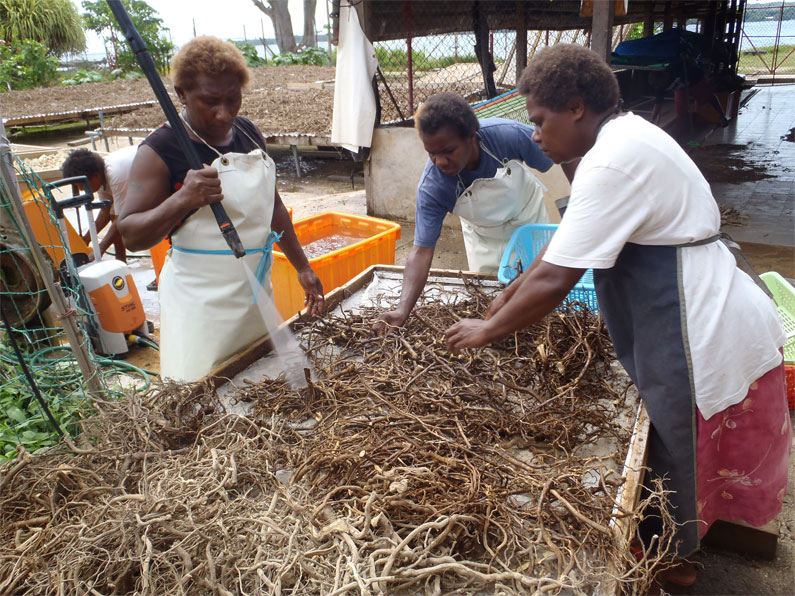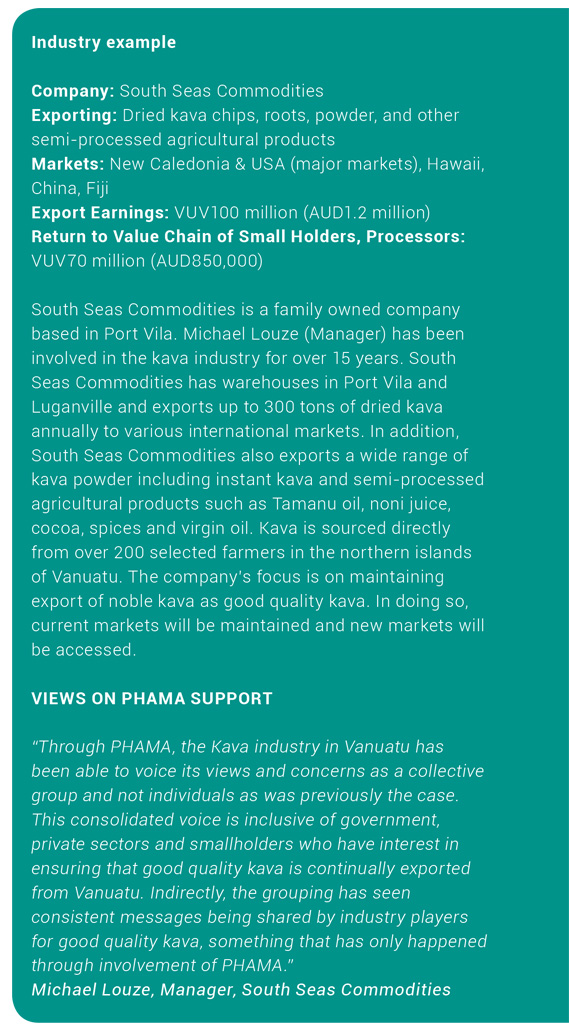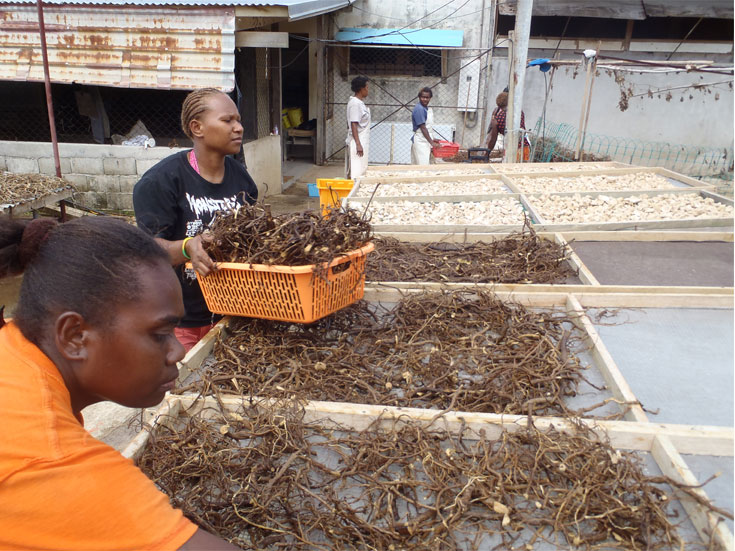Kava
 The Industry and its significance
The Industry and its significance
Kava is the third largest export commodity in Vanuatu, generating an estimated VUV807 million (AUD 10 million) in annual export earnings, and providing income to over 30,000 households across many of the country’s islands. Livelihood income is generated from kava through direct export of kava chips, local sale in “nakamals” (kava bars), value added products, and services along the value chain such as packaging and transportation.
Most kava chips are exported to New Caledonia, Fiji, US, Guam, China, Kiribati and New Zealand. Potential increased market demand from the multi-billion dollar, international nutraceuticals market could promote further development of the industry in the future.
Market Access Issues
The main market access concern is that overseas regulatory authorities, particularly those in the European Union, place bans on kava imports due to health concerns over poor quality kava.
Tudei kava is a particular concern due to its potential toxicity.
By helping to improve quality and distinguishing between different kava varieties, PHAMA can reduce the risk of closure of market access to the European and other markets. We can also help farmers and exporters get better prices and increase export volumes, and potentially examine new products for development.
Phama Action
- Awareness materials: PHAMA has provided assistance in the development of kava quality awareness materials for distribution to farmers throughout the country. These materials have since been simplified to be used by farmers in the field.
- Quality testing: PHAMA has provided assistance towards research into field testing tools to assist with quality control and help distinguish between noble and other varieties of kava. The testing methodology has recently been scientifically peer reviewed and validated.
- Quality standards: PHAMA is supporting the development of appropriate quality standards and procedures as part of a national kava standard underpinned by the amended Government Kava Act.
- Industry development: PHAMA is also promoting collective action in the industry. It has helped establish a Kava Industry Working Group (IWG),which brings representatives of the private and public sectors together. They then collaborate on identifying priority market access issues and developing an industry strategy to guide future assistance by PHAMA, government and other donor programs.
Progress
PHAMA’s assistance to the Vanuatu kava industry is aimed at improving quality assurance systems and standards to ensure that market access into Europe and other markets is maintained. PHAMA’s efforts have raised awareness of correct production, processing and storage at all levels of the value chain.
PHAMA is not supporting any efforts to improve market access or promote kava consumption in Australia. The development of practical and economical quality testing tools will enable more effective quality assurance along the value chain.
Government and industry will greatly benefit from this increased knowledge and capacity to assist decision making processes in the development of appropriate standards.
Future Actions
PHAMA will continue to work to improve kava quality. Activities will promote awareness raising to inform the industry, including international buyers, around quality improvements.
The Kava IWG will continue to be the main mechanism for engagement with stakeholders.
Therefore PHAMA will prioritise activities to support the IWG’s ability to function sustainably as the recognised body representing the kava industry and act as an effective forum for discussion and policy advice between industry and government.
PHAMA will also continue working with Vanuatu on the development of its first ever national kava strategy.



